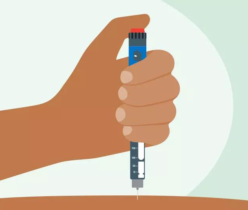Many people can no longer imagine everyday life without a smartphone. If people are actually afraid of not having a cell phone with them, it is called nomophobia. But is this already an illness?

What is nomophobia?
Reading the news, staying in touch with family and navigating traffic – the smartphone is convenient and gives many people a sense of security. However, some people feel so connected to their mobile phone that they feel uneasy, anxious or afraid when they do not have access to it – the word “nomophobia” is now often used in this context. The term originally comes from England, coined by a study by the British postal service in 2008.
The term is made up of “no-mobile” (“mobile” is the British colloquial term for “mobile phone”) and “phobia” – experts sometimes therefore refer to the phenomenon as “no-mobile phone phobia” . Doctors use the term ” phobia ” to describe specific anxiety disorders, such as the fear of spiders (arachnophobia). Many people have specific fears of certain objects or situations. However, these fears are only classified as an illness if they are excessive, persist for several months and lead to severe stress or avoidance behavior that significantly affects those affected in their everyday lives.
Although it is conceivable that some cell phone owners feel anxious when they are not with their companion, nomophobia is not yet a recognized illness in its own right. The phenomenon is currently not described in either the International Classification of Diseases and Related Health Problems (ICD) used in Europe or the Diagnostic and Statistical Manual of Mental Disorders (DSM) used in the United States.
Symptoms and signs of nomophobia
People with nomophobia often experience similar symptoms to those of an anxiety disorder without their cell phone: they are anxious, sweat, are agitated and have palpitations. Many also experience a feeling of social threat, which leads to severe stress. That is why those affected make a great effort in everyday life to always have their cell phone with them and to keep it functioning.
This may indicate nomophobia:
- Users are not psychologically capable of turning off their smartphones – they stay on around the clock.
- Those affected cannot bear to be separated from their mobile phones – for example, they cannot leave it at home when they go for a walk.
- People worry that without their cell phone they will not be able to get help when they need it.
- If users fail to check their phone for messages, they become irritable or anxious.
- The cell phone is with you everywhere , even in the bathroom.
- People almost constantly check where their smartphone is, for example, they constantly make sure that it is still on the table.
How is nomophobia different from cell phone addiction?
Both nomophobia and cell phone addiction focus on the smartphone . However, cell phone addiction has not yet been defined as a separate diagnosis. Only internet gaming addiction is an independent clinical picture with clearly defined criteria in the ICD-11. Like the classic gaming addiction, which has long been known, it is classified as a non-substance-related addiction. In the case of nomophobia, however, it is not yet clear whether this is a behavioral addiction, similar to internet gaming addiction, or more of an anxiety disorder, as the name suggests. Nomophobia symptoms occur in those affected, for example, when the cell phone battery is empty, they have forgotten their smartphone at home, or there is no network reception – in these situations they feel afraid because they cannot be reached and feel downright digitally uprooted . With internet or cell phone addiction, on the other hand, people are not anxious, but rather lose control of their usage behavior and put other needs and obligations aside, such as regular sleep, school or work tasks.

What are risk factors for nomophobia?
Researchers suspect that various risk factors promote nomophobia. Excessive smartphone use is particularly suspected here. Another phenomenon that is associated with nomophobia is the ” fear of missing out” . In addition, people with low self-esteem seem to be more susceptible. The fear of being separated from the cell phone was also observed more frequently in people who already suffered from other anxiety disorders or addictions, or who had experienced traumatic events and since then feared that they would not get help quickly enough without their cell phone.
How many people suffer from the fear of not having their cell phone with them?
It is difficult to quantify the proportion of people who become anxious when they lose or forget their cell phone. This is because there are no uniform evaluation criteria for the phenomenon – in one study, a person may only be at risk, while in another they may already be considered affected. In a systematic review, experts analyzed a total of 108 studies. As a result, they found that young people in particular are affected by these complaints. Women may also be affected somewhat more often, although the results of the individual studies are not consistent in this regard. Depending on the study, 13 to 79 percent of participants were considered to be at risk. However, the studies used different criteria for the symptoms of nomophobia and the target groups examined were often not representative of the population as a whole – so a definitive statement on the frequency of nomophobia complaints is not yet possible.

